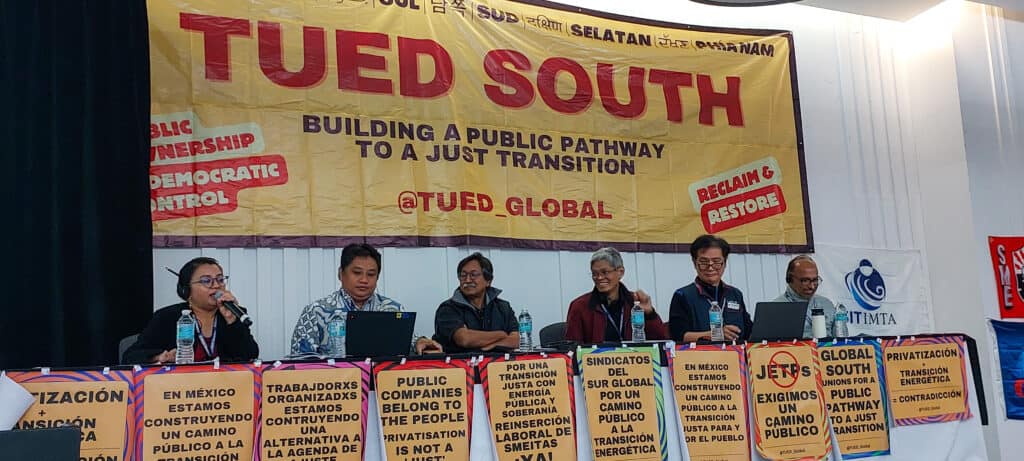
Union Aid Abroad’s partner unions from the Philippines, Indonesia, and Nepal joined over 100 trade unionists from Africa, Asia-Pacific, Latin America, and the Caribbean to push back against privatisation and advocate for public ownership of energy.
Held in Mexico City, the three-day conference—hosted by Trade Unions for Energy Democracy (TUED)—marked the second international gathering focused on advancing a publicly led just transition. The discussions underscored the urgent need for a new international energy order, one that prioritises public good over private profit and ensures a strategic, equitable shift towards clean energy.
The fight against privatisation
Trade unions are at the forefront of resisting the profit-driven privatisation of energy systems, a model that fails to serve the needs of workers and communities in the Global South. Representatives called for governments to take collective action in developing a new policy framework that ensures energy remains a public good. This includes:
- Expanding access to affordable and sustainable energy
- Reducing extraction and pollution
- Ensuring environmental safety and climate stability
Regional struggles and wins
At the conference trade unions shared powerful testimonies of their ongoing battles to protect public energy systems:
Indonesia: Andy Wijaya, Secretary General of PPIP, and Achmad Khoirul Anam from PJB detailed their unions’ recent victory in the Constitutional Court. They successfully blocked a push to dismantle the state-owned electricity company PLN’s generation, distribution, and transmission sectors—a move that would have paved the way for full privatisation. Their win follows two decades of legal battles against government attempts to liberalise the electricity sector.
A global commitment to public energy
The conference delegates reaffirmed their commitment to a global public goods approach, recognising that tackling climate change cannot—and should not—be driven by private profit. Instead, they advocated for greater international cooperation in energy governance to demonstrate that a different energy future is possible—one based on public ownership, sustainability, and social justice.
As trade unions continue to coordinate across borders, their fight for energy democracy remains crucial in shaping a just transition that serves people, not profits.
The Union Aid Abroad–APHEDA projects in The Philippines, Indonesia and Nepal are supported by the Finnish trade union solidarity organisation, SASK and Australian Unions.
